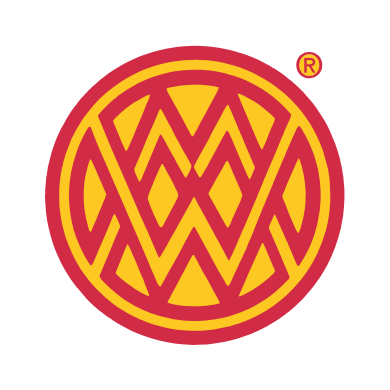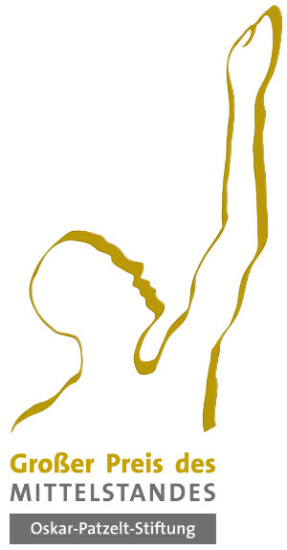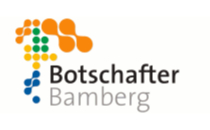Weyermann® Trademark Protection
Weyermann® Brands Protected by International Protocol
Imitation, so the saying goes, is the sincerest form of flattery. This may be so, but at the Weyermann® Malting Company imitation is the least welcome form of attention. Instead, Weyermann® does everything it can to discourage imitations of its malts from reaching the market. One tool in the Weyermann® arsenal for protecting its malts against copycat products is the established system of international trademark protection.
The best beer requires the best malt, of course, and making the best malt is a complex labor-, capital- and knowledge-intensive operation…and once you have figured out how to achieve and replicate malt perfection reliably day in and day out, and have branded that perfection, you do not want your competitors to jump in and get a free ride on your reputation and good name. To ensure that brewers all over the world can easily chose the best malt by a name they recognize Weyermann® has made it a policy to legally protect its good company name and logo as well as its malt brands in as many countries as possible.
The Madrid System of Intellectual Property Protection
In some jurisdictions, such as the United States, the simple use of a brand name for a commercial purpose would accord the producer the addition of the symbol “TM” next to the brand name. The Weyermann® Malting Company, however, feels strongly that a “TM”-type protection is not sufficient to discourage imitators from usurping its well established Weyermann® trade names. The Weyermann® brands Carapils®/Carafoam®, Carahell®, Carafa®, Caramünch®/Caramunich®, Carared®, Caraamber®, Caraaroma®, Carawheat®, and SINAMAR®, and the Weyermann® WM-logo, therefore, are now duly registered marks in many countries in the world, either locally or through the so-called Madrid Protocol, an international system of rules drafted in Madrid in 1989. The Madrid Protocol harmonizes trade mark registration procedures and the rights that derive from such registration among the Protocol’s signatory countries. The Protocol is the modern adaptation of an older international trademark system established almost a century earlier, in 1891, also in Madrid. The 1989 Madrid Protocol is administered by the International Bureau of the World Intellectual Property Organization (WIPO) located in Geneva, Switzerland.
The key advantage of the modern Madrid system of international registration—comprised of both the Madrid Agreement of 1891 and the Madrid Protocol of 1989—is that trademark owners can protect their corporate intellectual property and commercial branding in all member countries by simply filing a single application just with their own national or regional trademark office. The same applies to all periodic renewal applications. Currently 78 countries are part of the System (count as of September 22, 2005). Of these, 56 are signatories to the old Madrid Agreement and 67 of the more recent Madrid Protocol. Some have signed both. Virtually all the world’s major trading nations are now part of the Madrid Protocol, including China and the United Kingdom (since 1995), Germany (since 1996), France and Russia (since 1997), Italy and Japan (since 2000), and the United States (since 2003).
Once a trademark is registered nationally in one member country of the Madrid system, it automatically becomes an international trademark in each of the other member countries that the brand owner has specified in the application. The exception is when, within a specified period of time, the trademark office of a designated country refuses to grant the sought protection for a particular reason, such as, the violation of prior rights of a third party known perhaps only to that national office.
The Weyermann® Market and Trademark Protection
In the “old days,” before a country had signed on to the 1891 Agreement or the 1989 Protocol, Weyermann® had to register its malt brands separately with each national intellectual property office in the country into which the company wanted to export. Thus, for some of its malt brands sold in the United States, for instance, Weyermann® still holds separate American registrations with the Patent and Trademark Office of the U.S. Department of Commerce in Alexandria, Virginia, while for other malts, the same United States protection is covered through a Madrid system registration. Considering that Weyermann® now exports its malts to 87 countries worldwide, the Madrid System obviously simplifies the paperwork involved in Weyermann®’s global efforts to protect its trademarks.
Within the framework of the Madrid system, Weyermann® usually specifies the following countries (or a selection of these) for desired trademark protection (alphabetically): Australia, Austria, Belgium, Belarus, Bosnia-Herzegovina, Bulgaria, China, Czech Republic, Croatia, France, Germany, Hungary, Italy, Kazakhstan, Korea (South), Kyrgyzstan, Latvia, Liechtenstein, Luxembourg, Macedonia, Morocco, Namibia, Netherlands, Norway, Romania, Russia, Singapore, Slovak Republic, Slovenia, Spain, Switzerland, Tajikistan, Turkey, Ukraine, the United States, Vietnam, and Yugoslavia. In Canada, not a member of the Madrid system, applications for trademark registration are currently pending for Weyermann® Carahell®, Carafa®, Caramunich®, Carafoam®, Carared®, Caraamber®, Caraaroma®, and Carawheat®. Finally, Weyermann®’s SINAMAR® all-natural liquid malt color is protected in all member countries of the European Union as well as in the United States.
Several Weyermann® brand names are registered in two spellings, both with just an initial capital and in all capital letters (examples: Carared® and CARARED®; and Caraaroma® and CARAAROMA®). Weyermann® Munich malt is registered in both its German and anglicized versions, in all-capitals, as CARAMÜNCH® and CARAMUNICH®.
Weyermann® as Trademark Pioneer in the International Malt Industry
Historically, Weyermann® has been in the forefront of international trademark protection for malts and malt products. The oldest Weyermann® trademark dates back to 1907, for SINAMAR®. It was filed with the then-imperial German trademark office in Berlin. A year later, in 1908, Weyermann® registered its first caramel malt, the pale Carapils®. In those early days, Weyermann® was the only malting company employing a kilning and stewing process that was capable of producing a Pils-colored caramel malt. The addition of Carapils® to a grain bill ensures enhanced foam production and head retention in the finished beer, as well as a fuller body and mouthfeel, but without adding color or roasted flavors.
As Weyermann® evolved from a mostly national to an international company, the need to consider trademark protections outside the German borders became an ever more pressing issue. Thus, SINAMAR® became an international trademark in 1930, and Carapils®, in 1926. In North America, unfortunately, Weyermann®’s application for trademark protection of its Carapils® arrived too late: The name had already been registered by another malting company. In North America, therefore, unlike in Germany and the rest of the word, Carapils® is marketed under the name of Carafoam®, but the two names stand for the same product.
As is apparent from the list of Weyermann®’s registered brand names, only those with the prefix “cara” (in addition to SINAMAR®, of course) have been accepted for protection by the WIPO and its national affiliates. This is because generic product designations such as acidulated malt, dark wheat malt, or chocolate rye malt are ineligible for registration. Due to the catchiness of the names and the high reputation of the Weyermann® “Cara” malts, terms such as Carapils® or Carafa® are used as prime examples to refer to these types of malt in the international brewing industry. Likewise, Weyermann®’s Carafa® roasted malt has become the gold standard by which all other roasted malts, both dehusked and regular, are measured. In factr, “cara” can also be construed as an acronym, with “C” for color, “A” for aroma, “R” for richness, and the final “A” for “all you really need in your brew house.”
The Benefits of Trademarks for Weyermann® Distributors and Customers
For Weyermann®, taking part in the international trademark system of the Madrid Agreement and Protocol (and where necessary in national systems) is of paramount importance, because, throughout most of the world, trademarks that are not registered are not enforceable. This is also why Weyermann® is adamant about insisting that all printed references to its registered brands are accompanied by the trademark symbol “®.”
Weyermann® is particularly vigilant about renewing its trademark registrations whenever and wherever an expiration date approaches. As the Weyermann® brand name and logo as well as its malt brand names become more established in a particular market, they also become more valuable as commercial assets. Registration renewal is a periodic occurrence. Fortunately, there is no time limit on trademark registrations and they can be renewed indefinitely, unlike the other two categories of intellectual property, copyrights and patents, which eventually expire and then can no longer be renewed. The reason for the different treatment of trademarks is obvious: If trademark rights were to expire after an arbitrary deadline, both the customers and the producers of branded products would be harmed, as would be the producer’s distributors, simply because competing firms could then sell their products under another company’s trademark, and counterfeit or fake products of dubious quality could infiltrate the market with impunity.
With Weyermann®’s international efforts to protect its trademarks, therefore, Weyermann® distributors and customers can continue to be sure that the quality for which the Weyermann® name and its brands stand will always be in the bag. There will never be any confusion about that!


